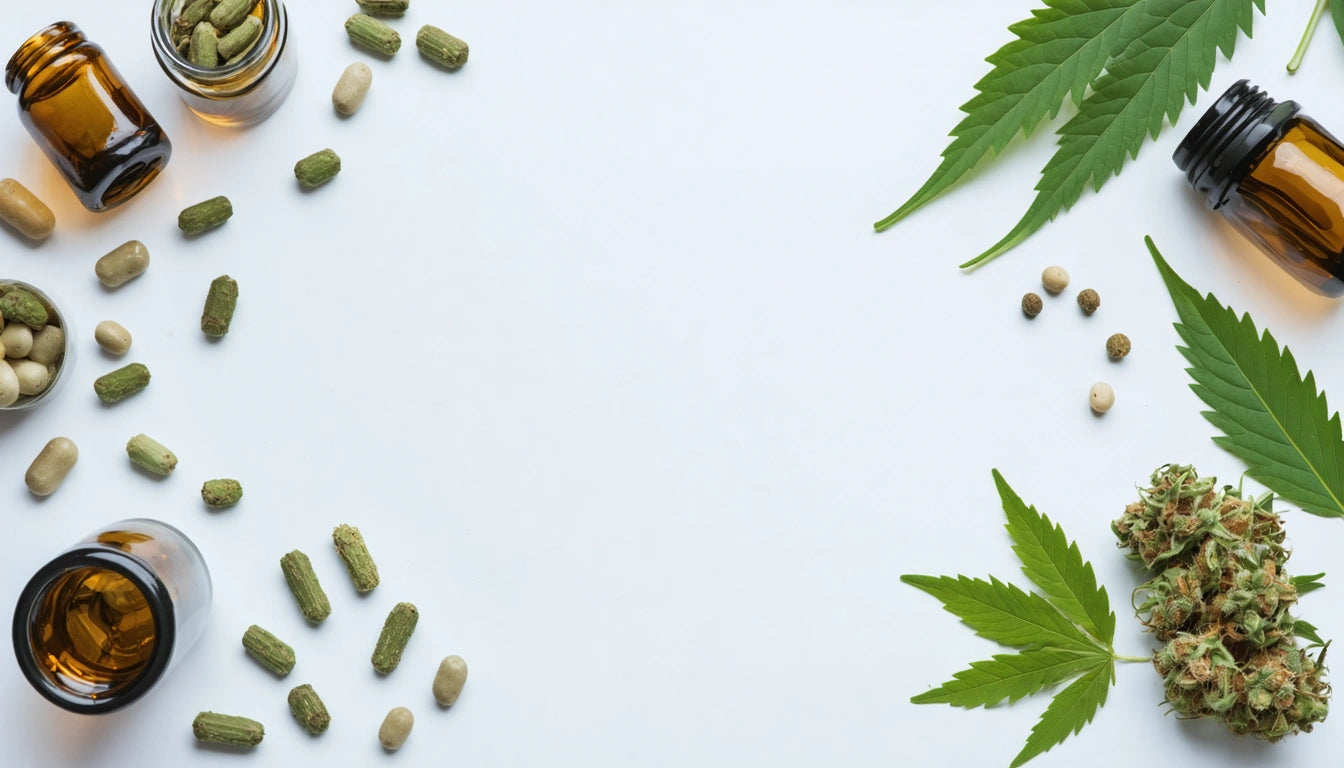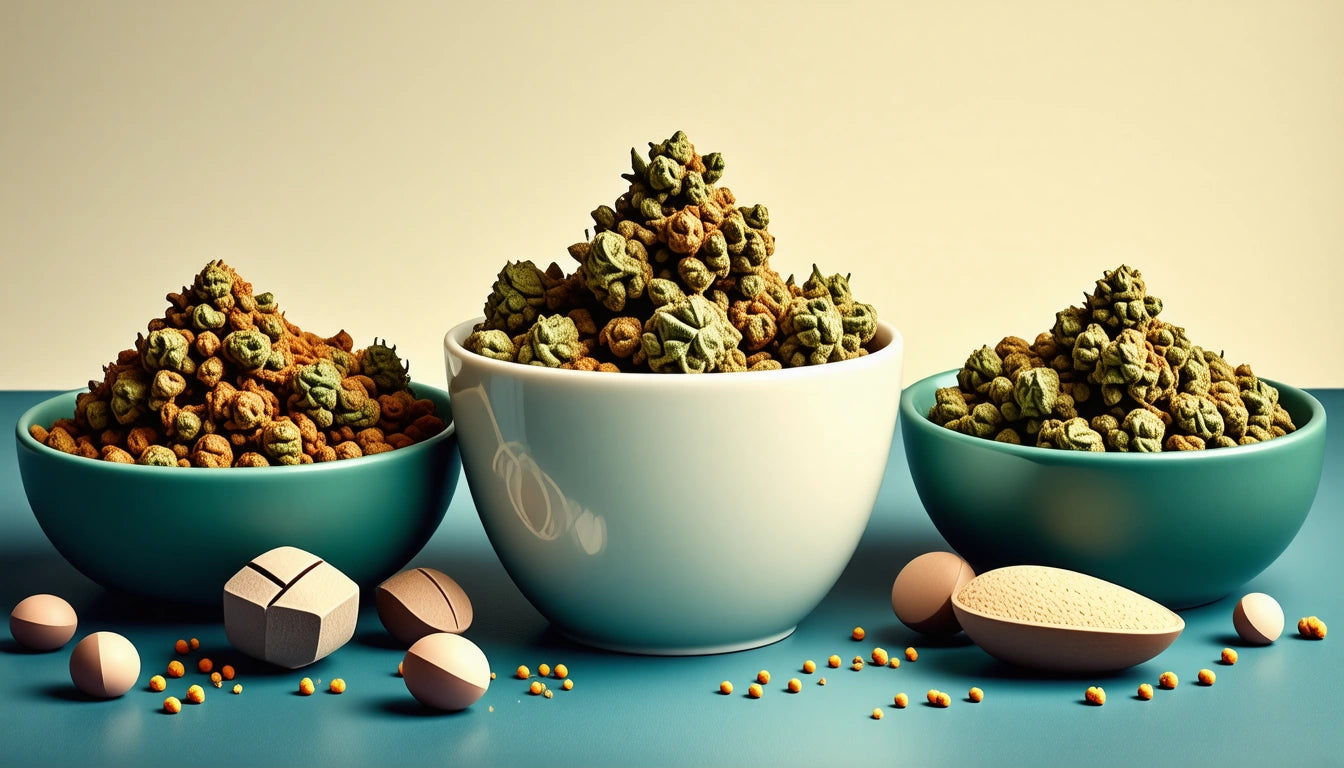Table of Contents
- The Cannabis and Testosterone Relationship: What Science Says
- THC, the Endocannabinoid System, and Hormone Production
- Short vs. Long-Term Effects of Cannabis on Testosterone
- Fertility and Sperm Health Considerations
- Sexual Function and Libido: The Testosterone Connection
- Research Limitations and Contradictory Findings
- Future Research Directions and Practical Considerations
Does Weed Affect Testosterone Levels in Men?
The relationship between cannabis use and testosterone levels in men has been the subject of ongoing research and debate. As marijuana legalization expands across the United States, understanding its potential effects on hormonal health becomes increasingly important for male consumers making informed decisions about their cannabis use.
The Cannabis and Testosterone Relationship: What Science Says
Research examining whether cannabis lowers testosterone in males shows mixed results. Some studies suggest that regular cannabis use may temporarily reduce testosterone levels, while others indicate minimal or no significant long-term effects. The variability in findings often relates to usage patterns, individual physiology, and research methodology.
According to studies on marijuana's impact on hormone levels, the relationship appears dose-dependent, with heavier users potentially experiencing more pronounced effects than occasional consumers.
THC, the Endocannabinoid System, and Hormone Production
THC, the primary psychoactive compound in cannabis, interacts with the body's endocannabinoid system, which plays a role in regulating hormonal function. When THC binds to cannabinoid receptors in the hypothalamus and pituitary gland, it can potentially influence the hormonal cascade that stimulates testosterone production in the testes.
Research on THC's impact on testosterone suggests that this interaction may temporarily suppress the hypothalamic-pituitary-gonadal axis, potentially resulting in reduced testosterone production. However, the body typically adapts to these effects, particularly in moderate users.
Short vs. Long-Term Effects of Cannabis on Testosterone
Acute Effects
In the hours following cannabis consumption, some studies have observed temporary decreases in circulating testosterone. This short-term effect typically resolves within a day as THC metabolites clear from the system.
Chronic Effects
For regular, long-term cannabis users, the body may develop tolerance to some of these hormonal effects. When looking at whether smoking weed lowers testosterone levels over time, research suggests that while chronic heavy use might lead to some adaptation in the endocannabinoid system, complete cessation typically allows hormone levels to return to baseline.
Fertility and Sperm Health Considerations
Beyond direct testosterone effects, cannabis use may impact male fertility through several mechanisms. Research on cannabis and sperm count indicates potential reductions in sperm concentration, motility, and morphology among regular users.
These effects appear linked to both direct action of cannabinoids on sperm cells and indirect effects through hormonal changes. In our manufacturing facilities, we've developed precise dosing and filling equipment that helps producers maintain consistent potency in cannabis products, which may be important for consumers concerned about controlling their intake for health reasons.
Sexual Function and Libido: The Testosterone Connection
Testosterone plays a crucial role in male sexual function and desire. Some cannabis users report enhanced sexual experiences, while others note decreased libido with heavy use. This paradoxical effect may relate to dose-dependent impacts on testosterone and other factors affecting sexual function.
Studies on weed's effect on libido suggest that moderate consumption might enhance sexual experience through relaxation and sensory enhancement, while heavier use could potentially diminish sexual function through hormonal pathways.
Research Limitations and Contradictory Findings
Several factors complicate research on whether marijuana lowers testosterone in men:
- Many studies rely on self-reported usage patterns
- Cannabis potency varies significantly between products
- Consumption methods affect bioavailability and metabolism
- Individual factors like age, health status, and genetics influence outcomes
- Ethical constraints limit controlled human studies
These limitations contribute to seemingly contradictory findings across studies. More standardized research protocols are needed to clarify the relationship between cannabis and male hormonal health.
Future Research Directions and Practical Considerations
As cannabis research evolves, more nuanced understandings of its effects on testosterone are emerging. Future studies will likely examine how different cannabinoid profiles, consumption methods, and individual factors influence hormonal outcomes.
For men concerned about whether weed lowers testosterone count, current evidence suggests several practical considerations:
- Moderate, occasional use appears to have minimal lasting impact on testosterone levels
- Heavy, chronic use may have more pronounced effects, though typically reversible
- Taking periodic breaks from cannabis use may help maintain hormonal balance
- Men with pre-existing hormonal issues should consult healthcare providers
- Those concerned about fertility may want to reduce or cease cannabis use when trying to conceive
While research continues to evolve, maintaining open communication with healthcare providers about cannabis use and hormonal health remains the most prudent approach for concerned individuals.











Leave a comment
All comments are moderated before being published.
This site is protected by hCaptcha and the hCaptcha Privacy Policy and Terms of Service apply.